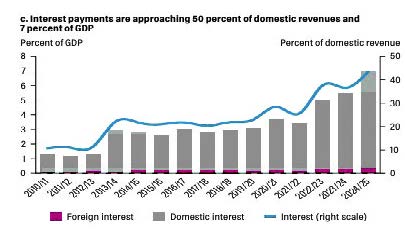Renewed calls for debt restructuring
Renewed calls have emerged for public debt restructuring and fiscal discipline following a new International Monetary Fund (IMF) paper that warns economies such as Malawi against delaying decisive action on rising debt burdens.
The IMF working paper titled ‘Restructuring sovereign domestic debt in developing countries: New cases and lessons’, authored by six economists, warns that delaying debt reforms often leads to deeper crises.

The paper observes that countries which wait too long to act face failed bond auctions, depleted reserves and surging inflation while those that move early manage to restore market confidence.
Reads the paper in part: “Inaction on rising domestic debt vulnerabilities can be costly. Timely and well-managed interventions are vital to prevent disorderly defaults.”
The observations by the IMF economists come against the backdrop of data showing that Malawi’s sovereign debt is at roughly K16 trillion, about 86.4 percent of the country’s gross domestic product while interest payments consume nearly half of all tax revenue.
With the 2025/26 fiscal year’s tax revenue estimated at K4.3 trillion, it means K2.1 trillion will go towards interest payment, a development local economists warn is crowding out spending on health, education and agriculture.
Speaking in an interview yesterday, economist Dalitso Kubalasa likened Malawi’s debt position to “a family that has borrowed too much from loan sharks and is now drowning”.
He said: “The money meant for hospitals and teachers’ pay is instead used to cover interest. Every day we delay, the debt piles up, clinics stay empty and classrooms fall apart.
“The discomfort of acting now, if handled with care, is better than the collapse that comes from inaction.”
Kubalasa urged the government to negotiate transparently with lenders while protecting local savers.
“We cannot fix a national crisis by creating a personal crisis for every retired and working Malawian. Any plan must safeguard pensions and bank deposits and every kwacha saved from debt payments should go directly to medicines, seeds and classrooms,” he said.
Mzuzu University economics lecturer Christopher Mbukwa said yesterday that Malawi’s public debt has “already reached the distress level,” calling for a coordinated approach that balances reform with financial stability.
He said: “Our debt now exerts immense pressure on the national budget through interest payments, diminishes fiscal space and crowds out critical services.
“Unless we tighten expenditure, strengthen revenue collection and restructure our debt, the current imbalances will remain unsustainable.”
Mbukwa said debt restructuring can help to lower interest costs and release resources for essential services.
In the case of domestic debt, currently at $5 billion (about K8.79 trillion), which is 60 percent owed to commercial banks and pension funds, restructuring could hit their liquidity and reduce credit to businesses and households.
Earlier this year, the Reserve Bank of Malawi (RBM) said it had negotiated better debt restructuring terms with Egypt-based Africa Export and Import Bank (Afreximbank) and Trade and Development Bank (TDB) following a fall-out with the International Monetary Fund (IMF).
But in June this year, Afreximbank said it was not engaged in debt restructuring negotiations related to any of its member countries, including Malawi as doing so would be inconsistent with the bank’s establishment treaty.
As part of efforts to qualify for the four-year $175 million (about K306 billion) Extended Credit Facility, which automatically terminated on May 15 this year, IMF had set addressing unsustainable public debt as one of the prerequisites for its support.
Malawi’s debt profile now mirrors those pre-crisis economies. Economists say the government must combine fiscal consolidation with a carefully managed restructuring process.





